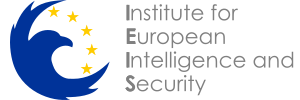Professionals registered with the Institute can be recognised across the European Union (EU) and the European Economic Area (EEA) under Directive 2005/36 (amended by Directive 2013/55). EU citizens registered with the Institute are entitled to work and be recognised as intelligence professionals by other European Union (EU) or European Economic Area (EEA) member states.
For the purposes of the directive, the intelligence profession is not considered regulated as registration is voluntary and intelligence is not a named profession under Article 3 paragraph 2. Article 11 of the directive sets out levels of professional qualification. Institute registration aligns to Article 11 (c), (d) or (e) depending upon whether a candidate obtains registration after having completed further or higher education.
With national registration there can be significant differences between registration requirements in different countries, requiring them to undertake compensation measures. As the Institute is a European organisation, no such differences exist and registrants shall be entitled to access across all EU/EEA member states. Making applications under the directive can be complicated and lengthy, for this reason the Institute makes all such applications on behalf of registrants upon request.
European Qualification Framework
The European Qualifications Framework (EQF) is a regional qualifications framework which joins the qualifications of different EU member states together. In a way, it is a translation of different national qualifications which makes qualifications in different EU countries easier to understand. The EQF aims to facilitate the mobility of students and workers within the EU. It encourages development, a mobile and flexible workforce and helps to develop lifelong learning.
The EQF was formally adopted by the European Parliament and the Council in April 2008 but only a minority of the EU member states mapped their qualifications to the framework. The EQF is voluntary and the member countries are not obliged to cross reference their frameworks but the number of completed cross references is expected to increase in the near future. The EQF enables the learners, learning providers and employers to compare qualifications between different national systems. This is thought to help increase mobility in the labour market as it makes it easier to determine a person’s level of qualification. In turn it will improve the balance between demand and supply of knowledge and skills.
The EQF is a lifelong learning framework and covers all types of qualifications ranging from those acquired at the end of compulsory education (Level 1) to the highest qualifications such as Doctorates (Level 8). It also includes vocational qualifications. The EQF consists of 8 difficulty levels focused on the outcome of learning and the person’s actual knowledge and skills rather than the volume of study needed to complete the qualification.
Bologna Declaration
The Bologna Process stems from the Bologna Declaration, initially signed by the Higher Education Ministers of 29 European countries in June 1999. 46 countries are now signatories, and the Declaration has strongly influenced developments in higher education across Europe. A major objective of the Bologna Declaration is to ensure more comparable, compatible and coherent systems of HE in Europe, and to promote mobility of both students and academics within Europe, by removing structural obstacles arising from differences between national systems. This does, of course, present challenges for individual countries.
EU Access to Practice
At the national level the intelligence profession is fundamentally unregulated. The Institute aims to impose self-regulation on the profession through the use of the legally protected titles. These titles may only be used by individuals who are registered with the Institute. Individuals admitted to the register must have been individually assessed as professionally competent and fit to practice intelligence work.
In general there is no restriction on the right to work in the field of intelligence. However some areas of work are reserved by regulation or industry standards to licensed or otherwise approved persons. Although registration is not yet mandatory, it is recognised as a requirement in many fields of employment and for the provision of certain services.


